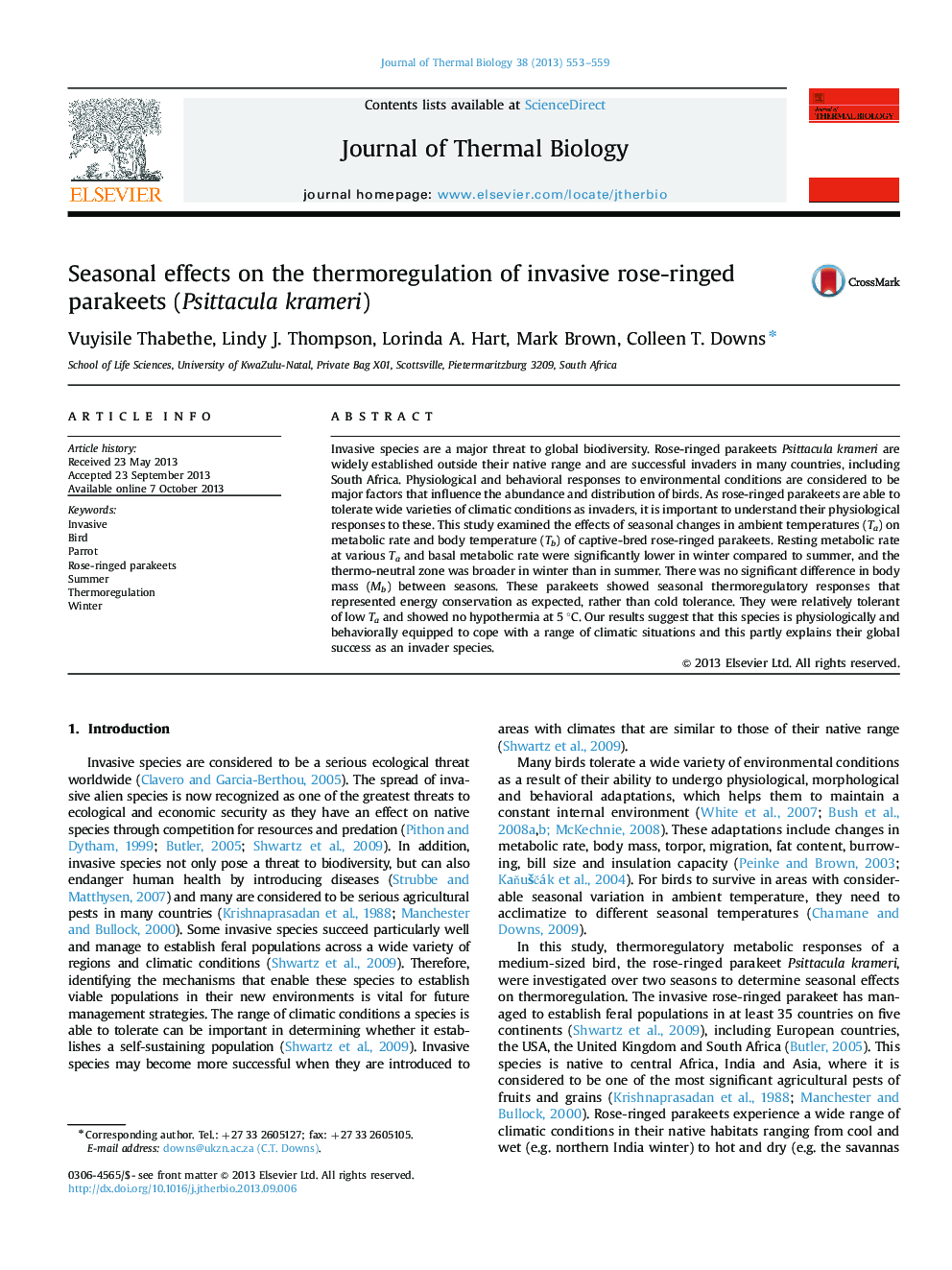| Article ID | Journal | Published Year | Pages | File Type |
|---|---|---|---|---|
| 2843039 | Journal of Thermal Biology | 2013 | 7 Pages |
•Rose-ringed parakeets Psittacula krameri are invasive worldwide.•Effects of seasonal changes on their thermoregulation were examined.•They showed seasonal thermoregulatory responses.•These represented energy conservation, rather than cold tolerance.•This partly explains their global success as an invader species.
Invasive species are a major threat to global biodiversity. Rose-ringed parakeets Psittacula krameri are widely established outside their native range and are successful invaders in many countries, including South Africa. Physiological and behavioral responses to environmental conditions are considered to be major factors that influence the abundance and distribution of birds. As rose-ringed parakeets are able to tolerate wide varieties of climatic conditions as invaders, it is important to understand their physiological responses to these. This study examined the effects of seasonal changes in ambient temperatures (Ta) on metabolic rate and body temperature (Tb) of captive-bred rose-ringed parakeets. Resting metabolic rate at various Ta and basal metabolic rate were significantly lower in winter compared to summer, and the thermo-neutral zone was broader in winter than in summer. There was no significant difference in body mass (Mb) between seasons. These parakeets showed seasonal thermoregulatory responses that represented energy conservation as expected, rather than cold tolerance. They were relatively tolerant of low Ta and showed no hypothermia at 5 °C. Our results suggest that this species is physiologically and behaviorally equipped to cope with a range of climatic situations and this partly explains their global success as an invader species.
